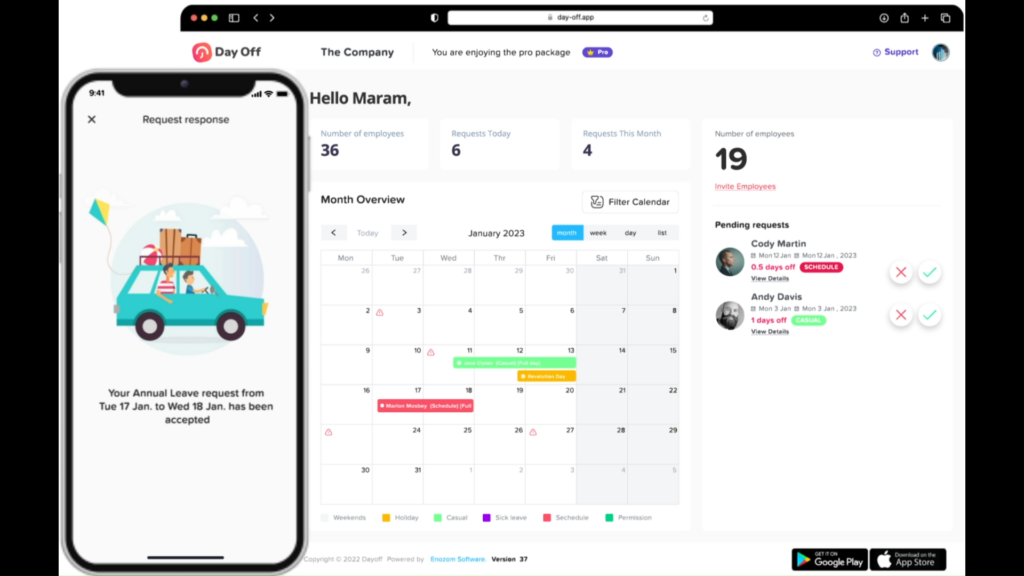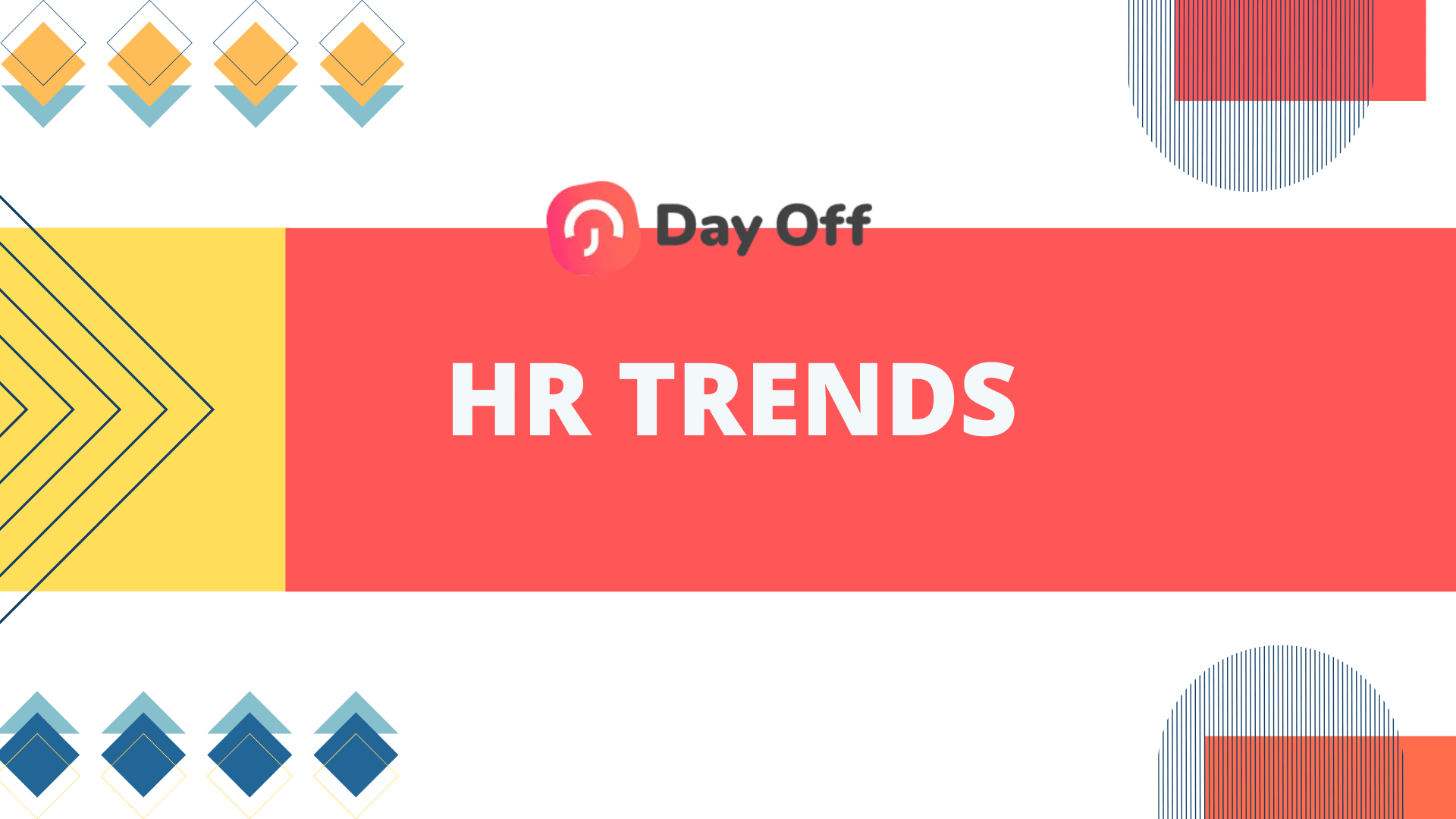Table of Contents
ToggleThe HR landscape is evolving at lightning speed, and 2025 is set to bring transformative trends that will redefine how businesses manage people, processes, and workplace culture. From AI-powered recruitment to employee-centric well-being strategies, the role of HR is becoming more strategic than ever.
Here are the most important HR trends for 2025, along with practical examples and insights on how companies can prepare.
AI and Automation in HR
Artificial Intelligence (AI) and automation are no longer futuristic—they are becoming integral to HR operations. By 2025, these technologies will handle more than just administrative tasks. They’ll shape the entire employee lifecycle.
Recruitment & Hiring: AI-powered tools can scan thousands of resumes in seconds, filtering candidates based on skills, experience, and cultural fit. Some platforms now use natural language processing to analyze cover letters and video interviews, reducing hiring bias and improving speed-to-hire.
Onboarding: Chatbots and automated systems guide new employees through paperwork, training schedules, and company policies. This creates a consistent experience while saving HR staff countless hours.
Employee Engagement: Personalized career development plans powered by AI can recommend courses, certifications, or internal job opportunities tailored to each employee’s strengths.
Payroll & Compliance: Automation reduces human error in payroll, tax filings, and benefits administration, minimizing compliance risks.
Insight: Companies must balance efficiency with empathy. While AI enhances speed, HR professionals should ensure that automation doesn’t eliminate the personal connections employees value.
Data-Driven Decision-Making
In 2025, HR will shift from being people managers to strategic advisors, thanks to the power of data. Predictive analytics will allow businesses to anticipate challenges and make proactive adjustments.
Employee Retention: By analyzing engagement surveys, performance data, and turnover patterns, HR can identify employees at risk of leaving and intervene with retention strategies.
Performance Management: Data dashboards will track key metrics like productivity, project outcomes, and peer feedback in real-time.
Talent Development: Skill gap analysis will help HR design upskilling programs that prepare employees for future roles, reducing the need for external hiring.
DEI Insights: Analytics tools can highlight disparities in pay, promotions, and hiring, helping companies strengthen diversity, equity, and inclusion (DEI) initiatives.
Example: A financial services firm could use predictive analytics to determine that employees in a specific department have higher turnover due to workload stress. HR could then proactively adjust staffing or introduce wellness initiatives.
Hybrid and Remote Work Models
The hybrid work model is here to stay, blending remote flexibility with in-person collaboration. By 2025, employees will expect organizations to support multiple working styles seamlessly.
Technology Integration: Virtual reality (VR) meeting spaces, AI-driven productivity tools, and collaboration platforms will ensure remote employees feel equally connected.
Remote Onboarding & Culture-Building: HR teams must create digital-first onboarding experiences, including welcome kits, virtual mentorship, and interactive training modules, to help new hires integrate into company culture.
Equitable Work Policies: One major challenge will be avoiding the “proximity bias,” where in-office employees are favored over remote ones. Clear policies around promotions, recognition, and communication will be crucial.
Best Practice: Focus on results, not hours. Companies that shift performance management from attendance to output will thrive in hybrid work environments.
Employee Well-Being and Mental Health
In 2025, employee well-being will move from being a perk to being a core business strategy. In 2025, employees will expect employers to support their physical, emotional, and financial wellness.
Mental Health Resources: Employers will invest in therapy services, mental health apps, and stress management workshops. Managers will also be trained to recognize burnout and provide support.
Flexible Scheduling: More organizations will offer four-day workweeks, flex hours, and remote days to support work-life balance.
Financial Wellness Programs: Debt management tools, financial literacy workshops, and retirement planning assistance will help employees reduce stress and plan for the future.
Holistic Wellness: Beyond gym memberships, companies will offer wellness stipends employees can use for yoga, meditation, or nutrition coaching.
Example: Tech companies are leading the way by offering mental health days in addition to PTO, acknowledging that rest and recovery directly impact productivity.

Skills Development and Lifelong Learning
With automation reshaping jobs, continuous learning is becoming non-negotiable. By 2025, companies that don’t invest in upskilling risk falling behind.
Personalized Learning Paths: AI-driven platforms will create custom training plans for each employee, identifying areas where they need development.
Upskilling & Reskilling: As automation replaces routine tasks, HR will focus on preparing employees for new roles that require creativity, problem-solving, and leadership.
Microlearning: Bite-sized courses and gamified learning experiences will make training more engaging and accessible.
Partnerships with Universities & EdTech: Companies will collaborate with education providers to offer certificates, workshops, and professional development programs.
Best Practice: Tie training programs to career growth opportunities. Employees are more likely to engage in learning when they see a clear path to promotions or new roles.
6. Diversity, Equity, and Inclusion (DEI)
In 2025, DEI won’t be just a checkbox, it will be a core value and business driver. Companies that embrace true inclusivity will outperform competitors in innovation, employee satisfaction, and customer trust.
Bias-Free Recruitment: AI tools will help eliminate unconscious bias in job descriptions and candidate evaluations.
Inclusive Leadership Training: Managers will receive training to build diverse, collaborative teams where all voices are heard.
Employee Resource Groups (ERGs): More organizations will support ERGs to create safe spaces for underrepresented groups.
Pay Equity Audits: Data analytics will ensure fair pay across gender, race, and other demographics.
Insight: A diverse workforce leads to better decision-making and innovation, but inclusion is the key to unlocking those benefits.
The Rise of the Gig Economy
By 2025, gig and freelance work will become a mainstream part of business strategy. Organizations will rely more on contract talent for specialized projects, while workers enjoy greater flexibility.
Flexible Hiring Practices: Companies will maintain a mix of full-time staff and contract professionals to stay agile.
Portable Benefits: HR will need to design benefits that can extend to gig workers, such as access to health insurance marketplaces or retirement savings platforms.
Legal Compliance: As gig work grows, governments may tighten regulations around worker classification, making compliance a top HR priority.
Example: Marketing firms increasingly rely on freelance designers and writers, allowing them to scale talent up or down based on client demand.
Employee Experience as a Competitive Advantage
In 2025, employee experience (EX) will be as important as customer experience. Companies will compete for talent not just with salary but with culture, growth opportunities, and engagement.
Seamless Employee Journey: From onboarding to promotions, HR will ensure every interaction enhances trust and satisfaction.
Personalization: Employees will expect benefits and career paths tailored to their needs, not one-size-fits-all policies.
Engagement Platforms: Real-time feedback tools and pulse surveys will keep employees connected and heard.
Employer Branding: A strong company culture will be showcased on platforms like LinkedIn, Glassdoor, and social media to attract top talent.
Insight: Employees who feel valued and supported become brand ambassadors, improving recruitment, retention, and overall performance.
FAQ: HR Trends 2025
Why is AI important in HR?
AI is transforming HR by automating time-consuming tasks such as resume screening, interview scheduling, and payroll management. This not only speeds up recruitment but also reduces human bias in hiring. Beyond administration, AI provides personalized career development paths, predicts turnover risks, and even measures employee sentiment. By freeing HR professionals from repetitive work, AI allows them to focus on higher-value activities like culture-building, leadership development, and strategic workforce planning.
Will remote and hybrid work remain popular in 2025?
Yes, hybrid and remote work models are no longer temporary solutions; they are a long-term expectation for many employees. Workers want the flexibility to choose where and how they work, and companies that fail to provide this risk losing talent. In 2025, the best employers will go beyond offering remote options; they’ll invest in digital tools, equitable policies, and inclusive practices that ensure both in-office and remote employees have equal opportunities for growth and recognition.
How can companies support employee well-being?
Supporting employee well-being goes beyond offering gym memberships or occasional wellness perks. Leading companies in 2025 will create comprehensive well-being strategies that include:
Mental health resources such as access to therapy, counseling, or mindfulness apps.
Flexible scheduling options like four-day workweeks or flex hours.
Financial wellness programs to reduce money-related stress.
Wellness stipends that employees can use for fitness, nutrition, or hobbies.
This holistic approach ensures employees feel supported not just at work, but in their personal lives as well.
Why is skills development critical in 2025?
The rapid growth of automation and AI means many traditional roles are evolving or disappearing. To stay relevant, employees need ongoing opportunities to upskill and reskill. In 2025, HR departments will provide personalized learning paths, microlearning platforms, and access to certifications that prepare workers for future roles. Companies that invest in continuous learning not only retain top talent but also build a more agile workforce capable of adapting to industry changes.
What role does DEI play in the future of work?
Diversity, Equity, and Inclusion (DEI) are not just ethical imperatives, they are business drivers. In 2025, organizations that prioritize DEI will benefit from greater innovation, stronger collaboration, and improved employer branding. This means moving beyond metrics to actively foster inclusive cultures where employees feel valued and heard. Examples include bias-free recruitment, transparent pay equity audits, and employee resource groups (ERGs) that give underrepresented employees a voice.
How will the gig economy affect HR?
The rise of the gig economy means HR must rethink how they engage, compensate, and support contract workers. In 2025, businesses will increasingly rely on freelancers for specialized projects, and HR teams will need flexible hiring practices and compliance safeguards. Some forward-thinking companies may even experiment with “portable benefits” that can follow gig workers from project to project, giving them access to health insurance or retirement plans without traditional full-time employment.
What is “employee experience” and why does it matter?
Employee experience (EX) encompasses every interaction an employee has with a company, from recruitment and onboarding to career development and offboarding. A positive EX builds trust, loyalty, and engagement, while a poor one leads to high turnover. In 2025, organizations that prioritize employee experience will focus on personalization, real-time feedback, and seamless digital processes to create a work environment that feels supportive and empowering. Ultimately, a strong employee experience becomes a powerful competitive advantage in attracting and retaining talent.
Which HR trend should companies prioritize first?
While all trends are shaping the future of HR, companies should start with flexibility and well-being. These two factors consistently rank as the top priorities for employees, making them critical for retention and engagement. By establishing hybrid work models, offering mental health resources, and providing flexible benefits, organizations can address immediate workforce needs while building a foundation for long-term success.
As we move into 2025, HR trends will focus on enhancing flexibility, technology adoption, and employee well-being. Companies that stay ahead of these trends will be well-positioned to attract, retain, and develop top talent in the years to come. By embracing AI, promoting diversity, and investing in lifelong learning, organizations can create a thriving and future-ready workforce.
